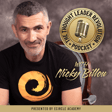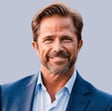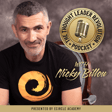
EP619: TL Nuggets #184 - Marty Strong - Be Different!
“How do you learn something from the past, but then say, what if the future is completely different? What if it's what if the whole industry takes a hard right turn in two weeks? Are you even thinking about that or even anticipating? Are you looking around to see if it's going to possibly happen?”
Have you ever considered how creativity can play a crucial role in strategic planning and long-term success? What if tapping into your creativity could unlock the growth potential of your business or even transform your leadership approach?
In both business and life, we often find ourselves stuck in routines or frameworks that limit our creative potential. Many of us start with limitless imagination, but as we grow older, rules and conformity restrict that innovative spark. What if we could reclaim that creativity and apply it to our strategies for growth, leadership, and success?
A powerful connection between creativity and strategic planning. Learn how creativity, often overlooked in business, can become a game-changing skill to solve problems, scale teams, and prepare for the future. Fostering an open, creative culture in your organization, one where ideas can flow freely, and innovation thrives. Whether you’re an entrepreneur or a leader looking to transform your approach, this conversation will help you break free from the limitations of conventional thinking and develop strategies that inspire growth and success.
Marty Strong is a former Navy SEAL, CEO of a mid-market healthcare company managing 90 doctors and nurse practitioners, and the CEO of a management holding company. He’s also a best-selling author of nine books, with his 10th book launching soon. With his unique blend of military discipline, business leadership, and creativity, he shares how bending the rules and encouraging innovation can drive success in any organization.
Website: MartyStrong.com
Books: Be Nimble
Expert action steps:
- Intellectual humility. Purge yourself of your ego.
- Intellectual curiosity. Look 360 degree for insights from all kinds of sources.
- Intellectual creativity. Honestly and holistically look at the true situation related to your goals.
Visit eCircleAcademy.com and book a success call with Nicky to take your practice to the next level.


















